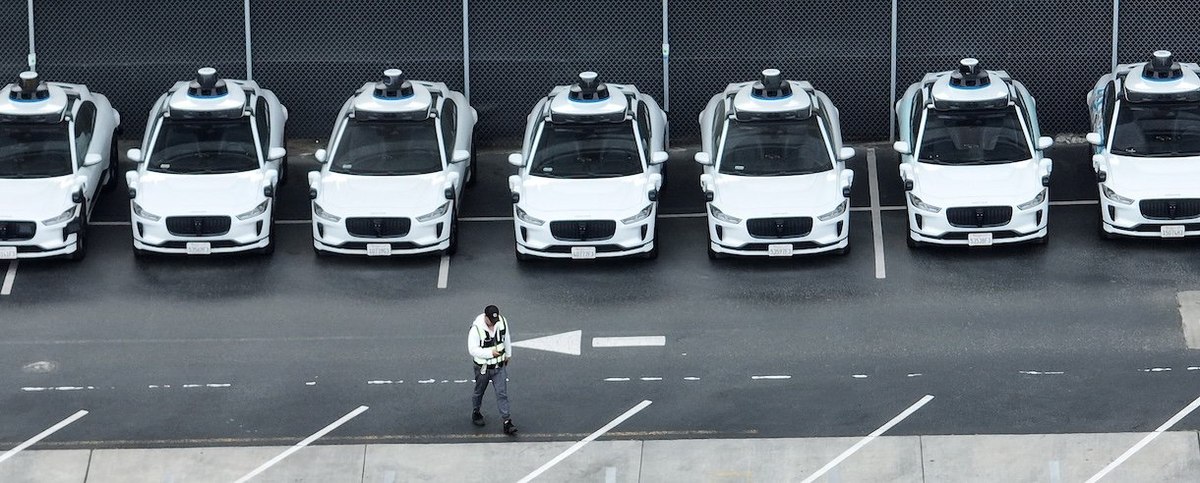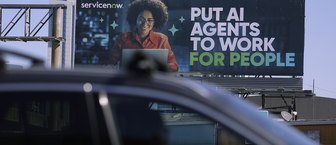Most Americans remain skeptical of driverless cars, but increasing shares of Americans are viewing the technology more warmly, a recent survey finds. Compared to September 2023, more Americans are now enthusiastic about autonomous vehicles, say they'd be willing to try one, believe they are safe, and support allowing them in their cities. A growing share also anticipates driverless cars will become widespread and that when this happens, they will decrease the share of people killed or injured in traffic accidents.
But while positive feelings about driverless cars are rising, this remains a minority viewpoint. Women and older Americans are especially likely to view driverless cars with skepticism. And people residing in cities are particularly enthusiastic about the technology, relative to those living in suburban or rural areas.
Roughly one-third of Americans (35%) say they are very or somewhat enthusiastic about the development of driverless cars, while 58% say they are not very or not at all enthusiastic. Half of adults under 45 (50%) say they are enthusiastic, compared to just 22% of people 45 and older. Men are nearly twice as likely as women to say they're enthusiastic (41% vs. 22%). Driverless car enthusiasm is more common among people in cities (44%) than those in suburban (30%) or rural areas (20%).
Most Americans — 70% — are very or somewhat worried about the use of driverless cars. People who are 45 and older (79%) are more likely to be worried about them than adults under 45 (60%). Women (75%) are more likely than men (66%) to say they are worried about driverless cars. Concern about driverless cars is higher in rural areas (82%), compared to suburban (74%) and urban areas (63%).
Will driverless cars ever become ubiquitous on U.S. roads? About half of Americans (49%) think they will definitely or probably become widespread on U.S. roads, while 37% expect they definitely or probably will not. Younger adults, under age 45, are more likely than those 45 and older (58% vs. 41%) to believe driverless cars will likely become widespread. Men (54%) are more likely to expect them to become widespread than women (44%). And more city residents (54%) think they will eventually become prevalent than suburban (47%) and rural residents (36%).
While many Americans think driverless cars will someday become widespread, few people currently have experience riding in one. Just 3% say they have been a passenger in a driverless car, though 37% say they would definitely or probably be interested in riding in one. More — 52% — say they definitely or probably would not be willing to try one. Adults under 45 are more likely to be open to the possibility than those 45 and older (58% vs. 25% have ridden in one or would be willing to try). Men (49%) are more willing to try a driverless car than women (31%). Interest is also higher among city residents (50%) compared to suburban (35%) and rural residents (27%).
Americans are more likely to strongly or somewhat oppose allowing driverless taxis in their city (54%) than they are to support allowing them (32%). Younger adults under the age of 45 (44%) are nearly twice as likely as those 45 and older (23%) to support allowing driverless taxis. Men (40%) are more supportive than women (24%). Support for driverless taxis is also higher among city residents (40%) compared to those in suburban (29%) and rural areas (24%).
Many Americans say they wouldn't feel safe around driverless cars: 65% say they would feel very or somewhat unsafe as a passenger in one, 61% would feel unsafe as a driver in a city where they operated, and 66% would feel unsafe as a pedestrian in a city where they operated. Perceptions of the safety of driverless cars have increased some in the past year.
Related:
- Driverless cars face skeptical U.S. public
- Long way to go in battle to convince Americans about safety of self-driving cars
- Six in ten people would feel unsafe as pedestrians in cities with self-driving cars
- How do Americans feel about 16 emerging technologies, including AI, VR, crypto, and NFTs?
See the results for this YouGov survey
— Carl Bialik and David Montgomery contributed to this article
Methodology: This article includes results from an online survey conducted November 27 - December 3, 2024 among 1,110 U.S. adult citizens. Respondents were selected from YouGov’s opt-in panel to be representative of adult U.S. citizens. The sample was weighted according to gender, age, race, education, 2024 presidential vote, 2020 election turnout and presidential vote, baseline party identification, and current voter registration status. 2024 presidential vote, at time of weighting, was estimated to be 48% Harris and 50% Trump. Demographic weighting targets come from the 2019 American Community Survey. Baseline party identification is the respondent’s most recent answer given around November 8, 2024, and is weighted to the estimated distribution at that time (31% Democratic, 32% Republican). The margin of error for the overall sample is approximately 4%.
Image: Getty
What do you think about American politics and everything else? Have your say, join the YouGov panel, and get paid to share your thoughts. Sign up here.










